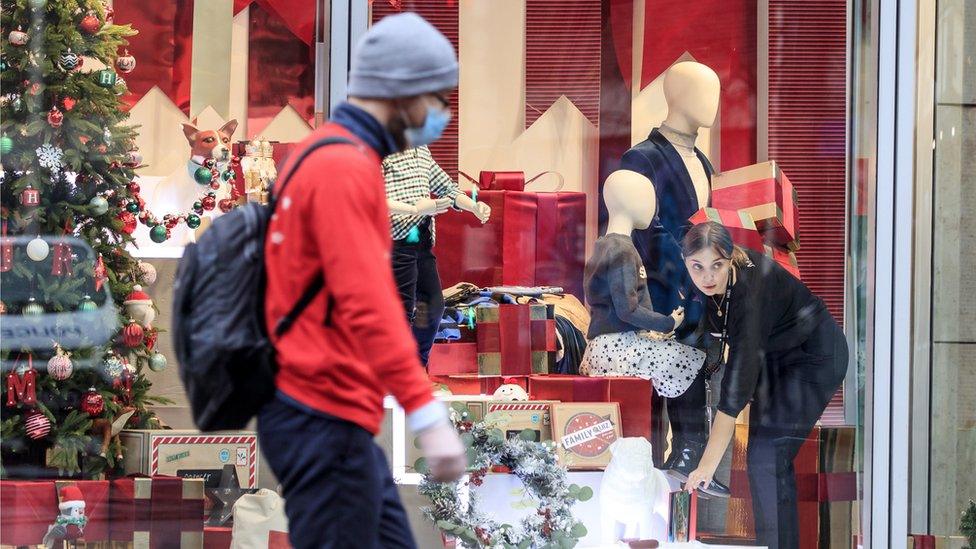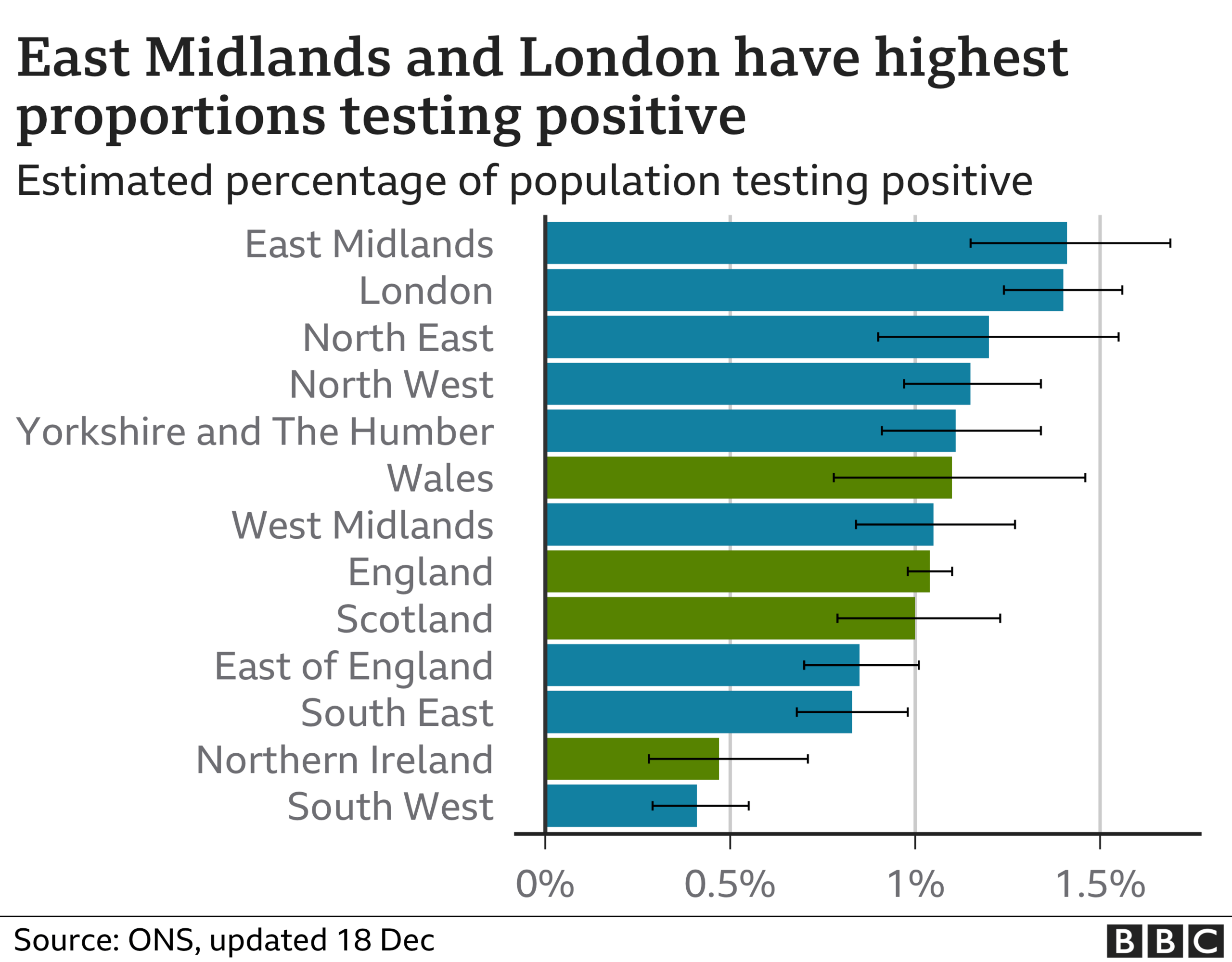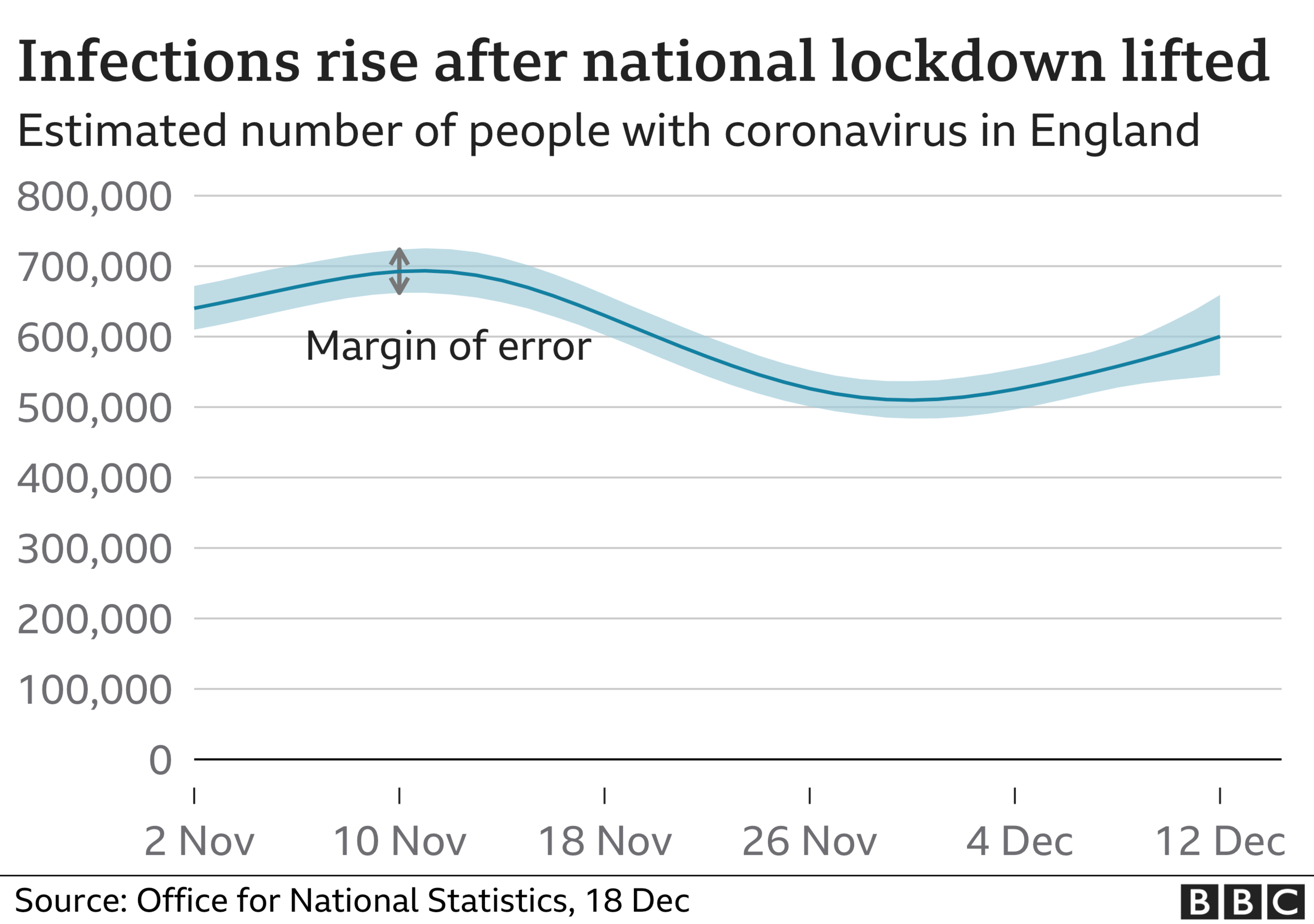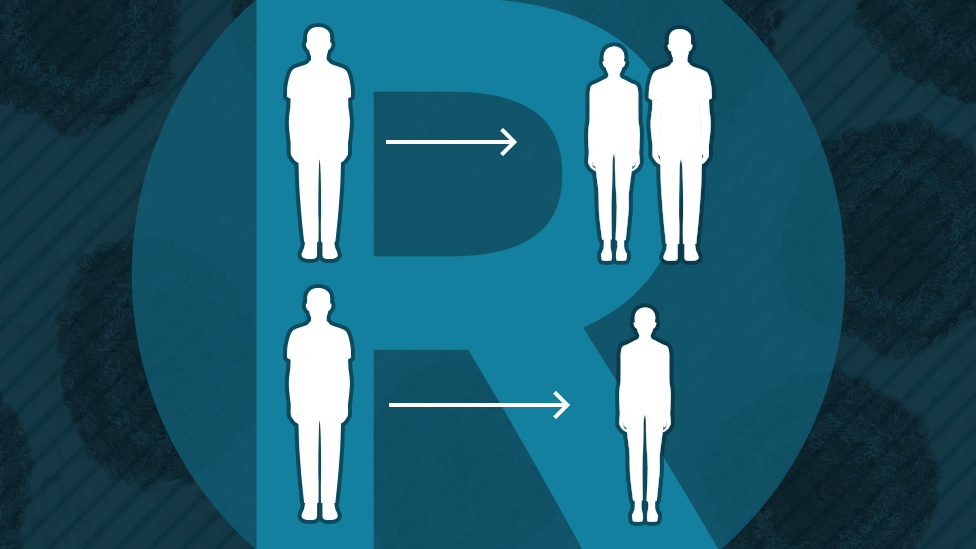Coronavirus: UK R number back above one
- Published
- comments

The UK's R - or reproduction - number is now estimated to be between 1.1 and 1.2, meaning the coronavirus epidemic is growing once again.
Covid-19 cases have risen to an estimated 660,000 infections across the UK between 6-12 December.
In England, the rise was driven by sharp increases in London, plus rises in the South East and East Midlands.
But the proportion of people testing positive in the North West and Yorkshire has continued to fall.
Roughly one in every 95 people had the virus across Britain last week.
The previous week's figures suggested about 560,000 people had the virus across the UK - one in 115 people in England, one in 120 in Scotland, one in 175 in Wales and one in 235 in Northern Ireland.
So weekly cases have gone up by about a fifth.

Covid cases are broadly stable in Northern Ireland with about one in every 215 people testing positive, according to Office for National Statistics (ONS) estimates.
The R number tells you how fast the epidemic is growing or shrinking.
Anything above one - indicating that each infection leads to more than one extra infection - means the epidemic is growing.
Prof Neil Ferguson, the influential epidemiologist from Imperial College London, told Radio 4's the World at One any future lockdown may have to be tougher than the one seen in England in November.
He said he was "more concerned about what we're going to be facing in early January than I am over the Christmas period itself.
"We're facing very rapid increases in case numbers over time and we have very little headroom - we've heard reports today that local hospitals that really are at their limits at the moment - as is typically the case in winter. So we just won't be able to allow case numbers to rise much further."

In England, there were increases in people testing positive in all age groups apart from 17-24-year-olds and 50-69-year-olds.
The figures suggest infections maybe levelling off in teenagers and young adults.
The highest proportions of Covid cases are now found in London and the East Midlands, followed by the North East and North West of England.
Across the UK, restrictions are about to be loosened over the Christmas period.
Prof Linda Bauld, Professor of Public Health at the University of Edinburgh, said this policy, "increasingly looks like the wrong decision at the wrong time.
"By allowing travel around the UK and changing guidance to allow household mixing indoors we are setting ourselves up for a miserable January with tough restrictions."
Wales and Northern Ireland have already announced new lockdowns to come into force immediately after this period of relaxation.
Similar arrangements for England and Scotland have not been announced, but they also haven't been ruled out.
Related topics
- Published26 March 2021
